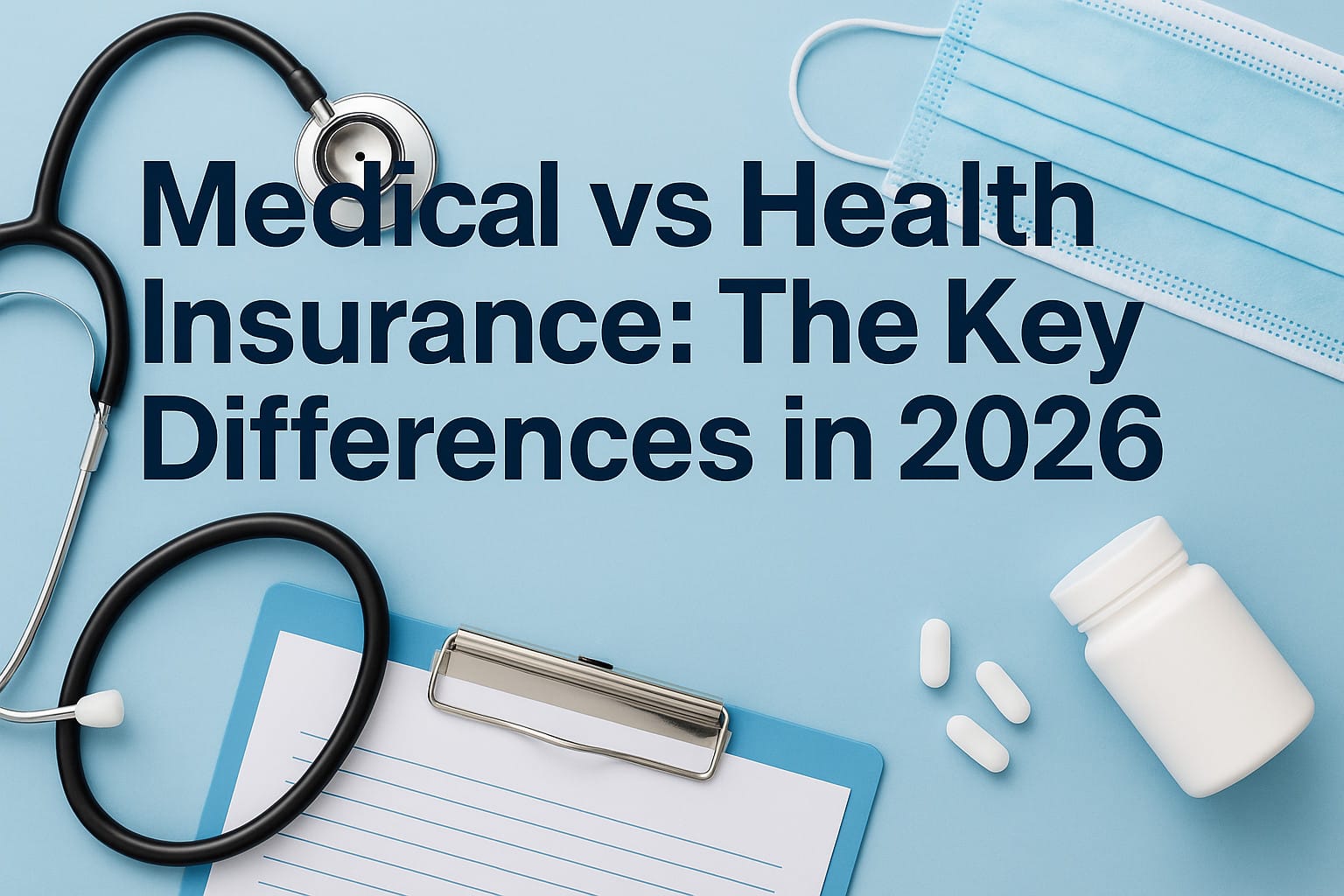Having a baby is the best feeling and a life-changing event, but it can also be expensive, especially when it comes to healthcare. In the UAE, the cost of giving birth can be high, with hospital bills going up to AED 15,000 or more! This is where maternity insurance helps by covering some of these costs. But did you know that not all maternity insurance plans are the same? Whether you’re expecting now or planning for the future, it’s important to understand how maternity insurance works so you and your baby can get the best care without spending too much. Let’s look at 5 important things to know about maternity insurance in the UAE.
What to think about when choosing medical insurance with maternity cover in the UAE?
A woman’s body goes through many changes during pregnancy, so it’s important to watch her health carefully. A mother’s health is closely linked to her baby’s health. That’s why visiting the doctor regularly during pregnancy and even after childbirth is necessary. However, pregnancy-related costs can be very high without maternity insurance. If you’re married and planning to have a baby, you can get maternity insurance in the UAE. A good maternity policy will cover all pregnancy costs, ranging from AED 20,000 to AED 30,000 or more, depending on the type of delivery.
Here are the 5 things to know about maternity insurance in the UAE
Now, let’s look at the five most important things about maternity cover in the UAE:
1. Maternity coverage is mandatory in Dubai and Abu Dhabi
If your visa is issued in Dubai or Abu Dhabi, all health insurance policies are required by law to include maternity benefits. Both the Dubai Health Authority (DHA) and the Department of Health Abu Dhabi (DOH) mandate that all health insurance provided by employers must cover maternity services. This applies to both private sector employees and their dependents.
Employers are legally required to provide health insurance that includes:
- Pre-natal and post-natal care
- Deliveries (whether natural or by caesarean section)
- Newborn care (for a certain period after birth, usually up to 30 days)
What is typically covered?
Most maternity insurance plans in the UAE cover the following:
| Service | Description |
| Pre-natal Care | Routine check-ups, lab tests, and scans |
| Delivery | Normal delivery, caesarean section |
| Post-natal Care | Medical support after birth, check-ups for mother and baby |
| Newborn Care | Care for newborns for 30 days post-birth |
2. Pregnancy as a pre-existing condition
In the UAE, pregnancy is seen as a pre-existing condition by most insurance companies. But what does that mean, and why is it important?
- What is a pre-existing condition?
It is a health issue or illness you already have before getting a new insurance policy. For example, if you are already pregnant when you apply for insurance, it counts as a pre-existing condition.
- Why does it matter?
This is important because if you don’t tell your insurance company that you’re pregnant when you apply for coverage, they can reject your claims for any pregnancy-related costs. This includes doctor visits, scans, and the delivery itself.
Being open about your pregnancy when getting insurance will ensure that your claims are accepted and you receive the necessary financial assistance.
3. Coverage limits might make you pay extra
Even though maternity insurance is required, each plan has a limit on the amount it will cover for maternity care. You’ll have to pay the rest if your costs exceed that limit.
- Normal delivery limits: Most plans cover between AED 7,000 and AED 15,000 for a normal delivery.
- Cesarean delivery limits: Cesarean sections can be covered from AED 10,000, depending on your insurance.
- Newborn care: Most plans cover your baby’s medical care for 30 days after birth, including check-ups and vaccines.
It’s important to check these limits in advance to avoid surprise expenses.
4. Public vs. private hospitals for maternity care
In the UAE, many people prefer private hospitals for maternity care due to their advanced facilities and personalised services. However, it’s important to note that most insurance policies primarily cover government hospitals for emergency cases only. If you plan to give birth in a private hospital, you must ensure your insurance covers that specific hospital.
How to check if your hospital is covered?
Before choosing a hospital for delivery, always:
- Review your insurance network: Check which hospitals are covered under your plan.
- Confirm coverage: Make sure the hospital where you plan to give birth is in your insurance provider’s network. If you still need to, you might need to pay a significant portion of the bill.
By checking this in advance, you can avoid surprises and make sure you receive the care you want at the hospital of your choice.
5. Maternity coverage for Northern Emirates
Suppose you hold a visa from the Northern Emirates (Sharjah, Ajman, Ras Al Khaimah, Fujairah, or Umm Al Quwain). In that case, maternity benefits are not automatically included in your basic health insurance plan. This differs from Dubai and Abu Dhabi, where maternity coverage is mandatory.
What should you do?
If you’re planning to start a family or are already pregnant, it’s important to add maternity coverage when applying for health insurance in the Northern Emirates. This additional coverage will ensure that pregnancy, delivery, and post-natal care costs are covered.
This added protection can help reduce the financial burden and ensure you receive quality care throughout your pregnancy and postpartum.
How to choose maternity insurance in the UAE?
To select the right maternity insurance in the UAE, you can keep these things in mind:
- Plan ahead: Think about the waiting period and match it with your family plans.
- Understand the limits: Make sure the insurance covers enough for delivery and postpartum care.
- Check hospital networks: See if your preferred hospitals are included in the insurance.
- Read your policy: Carefully read the terms and conditions to avoid unexpected issues.
What’s the bottom line?
Maternity insurance in the UAE is important for expectant parents, as it helps manage the high childbirth costs. To make the most of your coverage, it’s important to understand key details like the waiting periods, what’s included in your policy, and which hospitals are covered. This knowledge lets you plan effectively and avoid unexpected expenses. Review the policy carefully and consult your insurance provider for any clarifications. Doing so can ensure that you and your baby receive the best care without worrying about financial strain.
For more insights into how maternity insurance can benefit you, explore the various advantages maternity insurance offers. If pre-existing conditions are part of your health history, it’s also important to understand how they affect your insurance plan.
Additionally, knowing what to check with your health insurance provider and understanding your policy’s nuances will help you make the most informed decision. Trusted resources like InsuranceMarket.ae can help guide you through the process, ensuring you find the right plan for your growing family.
Frequently Asked Questions (FAQs):
Q. How long is the waiting period for maternity insurance in the UAE?
The waiting period is usually 6 to 12 months, depending on the insurance company.
Q. What does maternity insurance cover?
It generally covers care during pregnancy, delivery (normal or cesarean), and care after birth for both the mother and baby.
Q. Can I get insurance if I’m already pregnant?
Yes, this must be declared when obtaining insurance with an additional premium to pay.
Q. Is cesarean delivery more expensive than normal delivery?
Cesarean deliveries usually have higher costs, so the insurance covers more.
Q. Can I extend coverage for my baby?
Many insurance companies offer extra coverage to extend beyond the usual 30 days.







